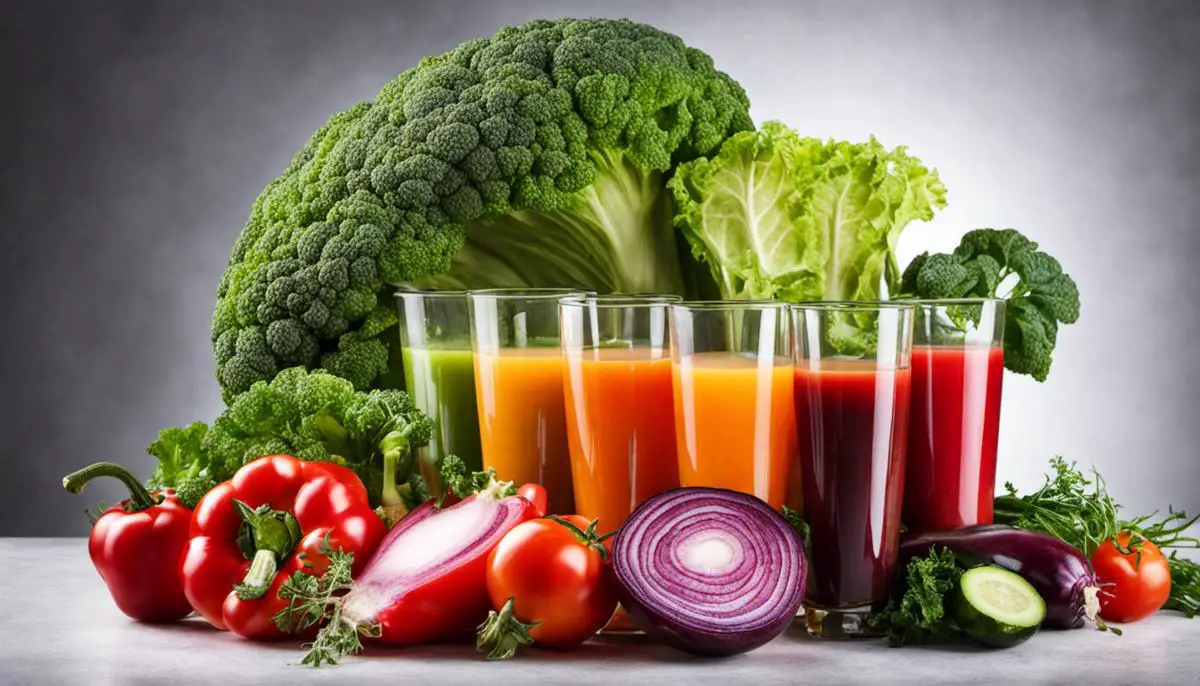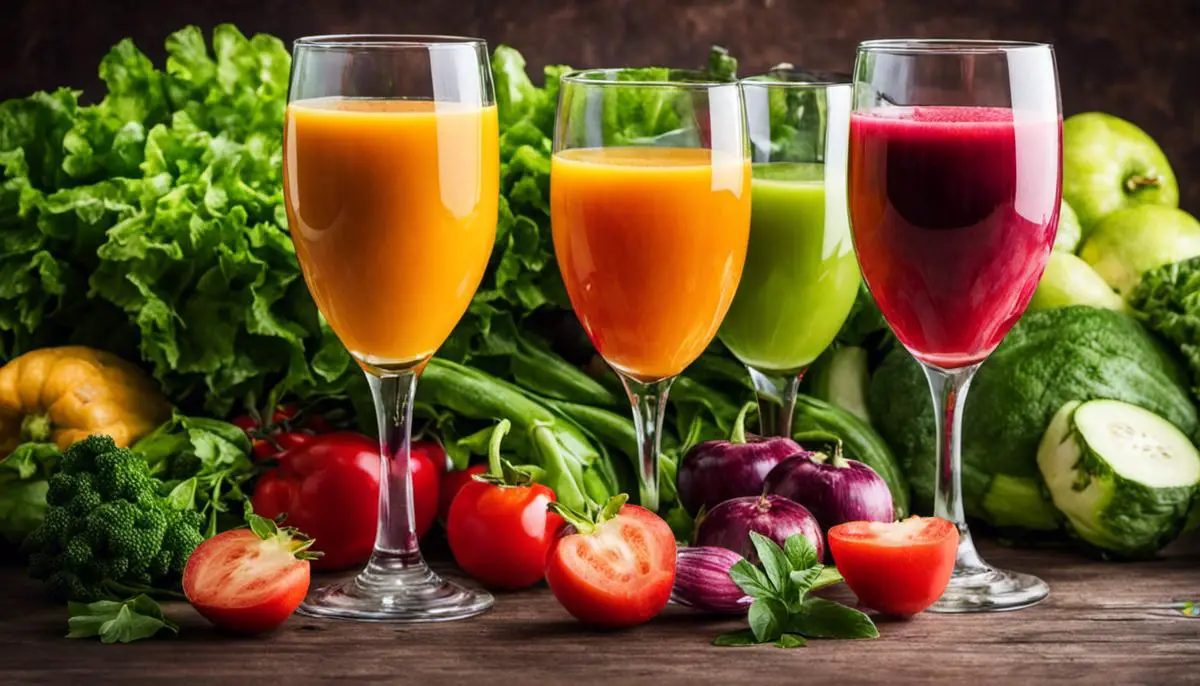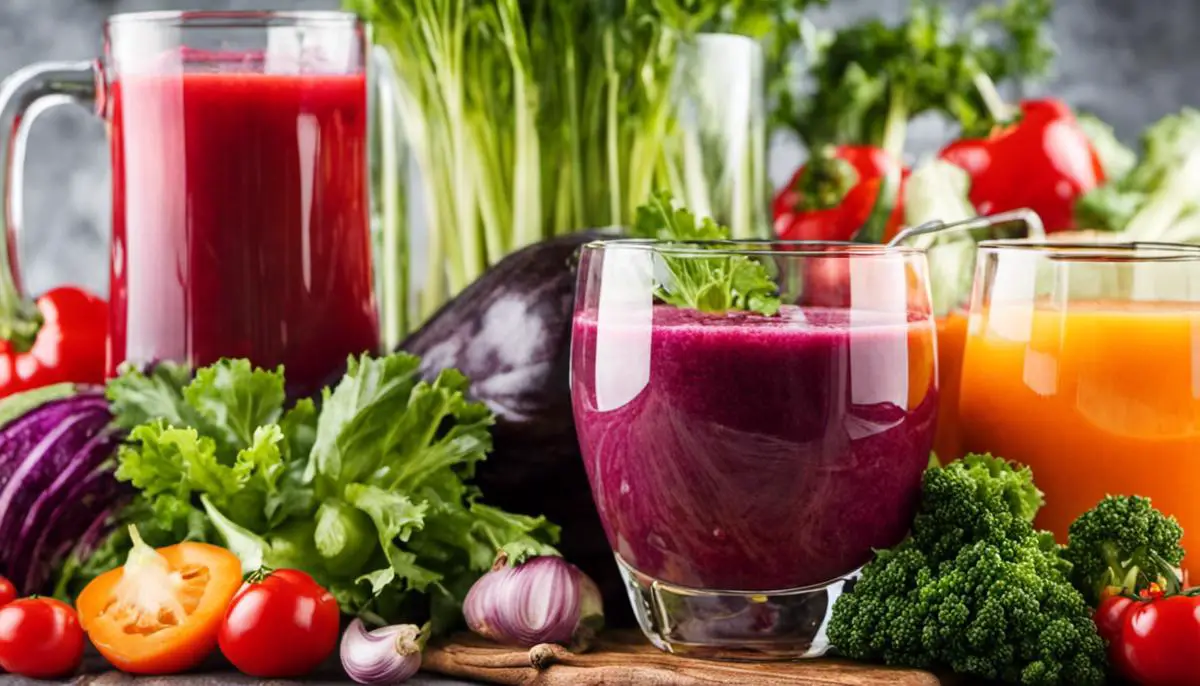The profound importance of diet in our daily lives extends far beyond weight management and overall health to impact something as delicate yet critical as our sleep patterns. Recent research has brought to light the intricate relationship between the food we consume and the quality of sleep we get, leading to a stir in our dietary choices and habits. This is a deep dive into the correlation between nutrition and sleep, focusing particularly on the potential held by vegetable juices. Packed with vitamins, minerals, and antioxidants, these juices, when consumed smartly and strategically, can optimize our sleep cycle. This narrative takes us through the role these nutrients play in our bodily functions and sleep regulation, offering a comprehensive understanding of this complex yet fascinating subject.
Understanding the connection between diet and sleep
Understanding Vegetable Juices and Sleep
The foods and drinks consumed by an individual play an integral role in sleep regulation. Some vegetables, particularly when consumed in juice form, can boost the sleep-inducing nutrients necessary for a good night’s rest. This includes vitamins and minerals like vitamin C, potassium, magnesium, tryptophan, and other essential nutrients.
Role of Nutrients in Sleep Regulation
Certain nutrients found in various vegetables have been linked to promoting better sleep. For instance, foods abundant in magnesium, a natural relaxant, can help to alleviate insomnia. Vitamin C is another important nutrient, which can help to manage stress and anxiety – two common contributors to sleep disorders. Tryptophan, an amino acid known for causing drowsiness, assists by elevating the production of serotonin, a neurotransmitter that can be converted into the sleep hormone melatonin.
Vegetable Juices for Improved Sleep Quality
Some common vegetable juices known for promoting sleep are cherry juice, kiwi juice, and pumpkin seed juice. Cherry juice, for example, has high levels of melatonin, which is known to induce sleep and regulate the body’s sleep pattern. Kiwi juice is rich in serotonin and antioxidants, which are beneficial for those with sleep issues. Pumpkin seed juice, on the other hand, is packed with tryptophan, zinc, and magnesium, all of which are known to contribute to a good sleep.
How to Incorporate Vegetable Juices into the Diet
Incorporating vegetable juices into your diet for better sleep doesn’t have to be complex. Many vegetables can easily be transformed into juices with the use of a blender or juicer. To get their sleep-inducing benefits, these juices could be consumed a few hours before bedtime. It’s also important to note that consuming too much of any juices, especially close to bedtime, can potentially disrupt sleep due to the sugar content.
Balanced Nutrition for Good Sleep
Like many health factors, achieving good sleep through diet requires a balanced nutrition approach. Along with consuming vegetable juices that are rich in sleep-promoting nutrients, it’s also important to maintain a balanced intake of proteins, carbs, and healthy fats. This helps to prevent possible nutrient deficiencies and ensures that your body has all the nutrients it needs to regulate itself, including its sleep cycle.
To summarize, by introducing vegetable juices abundant in sleep-encouraging nutrients into our daily nourishment regimen, we can vastly enhance the participation of our diet in regulating sleep. The incorporation of these nutrient-rich juices into a balanced eating plan has the potential to improve our sleep quality and may also aid in resolving sleep irregularities.

The nutritional component of vegetable juices
The Nutritional Value of Vegetable Juices
Vegetable juices are exceptional sources of vitamins, minerals, and antioxidants, each carrying a wealth of nutrients. Frequent choices for juicing, such as kale, spinach, celery, and beetroot, provide a unique mix of nutrients with significant health advantages, including improving sleep quality.
In particular, leafy greens like kale and spinach deliver high levels of minerals like calcium and magnesium, vital components for the production of melatonin – a hormone crucial for sleep regulation. Furthermore, these vegetables are rich in vitamins A, C, K, and powerful antioxidants, further complementing their overall health contributions.
Role of Nutrients in Bodily Functions and Sleep Cycle
Magnesium acts as a natural relaxant and can help calm the nervous system, aiding in preparing the body for sleep. Studies have shown that individuals with adequate magnesium levels have better sleep quality compared to those with a deficiency. Similarly, calcium is essential in the brain’s utilization of the amino acid tryptophan to produce melatonin.
Vitamin K plays a key role in bone health and regulating inflammatory responses in the body. Vitamin A enhances vision, supports the immune system, and promotes healthy growth and reproduction. Vitamin C contributes to the body’s formation and maintenance of skin, blood vessels, and bones, while also boosting the immune system.
Antioxidants found in vegetable juices serve as protective components against oxidative stress and inflammation. These elements are known to upset the body’s internal clock, leading to disrupted sleep cycles.
Vegetable Juices: A Natural Aid in Sleep Cycle Regulation
Including vegetable juices as a component of your bedtime ritual could greatly enhance your sleep quality. One primary reason is that they are typically low in sugar, thus avoiding the sleep disruption often caused by higher sugar intakes. Moreover, these juices are bountiful in both magnesium and calcium, both of which aid in the production of melatonin, the hormone necessary for maintaining a regular sleep cycle.
Notably, vegetable juices have a soothing effect on the gut due to their rich dietary fiber content, which fosters a healthy gut ecosystem. There is a well-backed connection between sleep disorders, such as insomnia, and a disturbed gut ecology, underscoring the crucial role gut health plays in sustaining sleep quality.
Regardless, it’s worth noting that individuals can have varied reactions to foods, including vegetable juices. So, it is advisable to explore and find out what suits your body and sleep rhythm the best.
In conclusion, in addition to its potential to foster better sleep, consuming fresh vegetable juice is an effortless method to ramp up the vegetable content in your diet, significantly contributing to overall health optimization.

Creating effective bedtime vegetable juice recipes
Often, the benefits of vegetable juices for sleep enhancement are disregarded. However, they’re a powerhouse of sleep-boosting nutrients. These nutrients comprise essential minerals like magnesium, potassium, and calcium, each playing a vital role in improving sleep. Furthermore, certain vegetables also contain sleep-inducing hormones and amino acids like melatonin and tryptophan, bolstering their sleep promotion properties.
Creating effective bedtime vegetable juice recipes involves combining a variety of vegetables that have these sleep-enhancing properties. Some popular options include kale, spinach, and celery, which are high in magnesium. This mineral has been shown to help induce sleep because it decreases cortisol, the stress hormone that can keep you awake.
Other vegetable choices include sweet potatoes, which contain a good amount of potassium that acts as a muscle relaxant, and fennel, which is rich in melatonin, a hormone that regulates the sleep cycle.
Combining these various vegetables into a juice recipe might involve blending a handful of kale or spinach, one or two medium-sized sweet potatoes, and a bulb of felnels. Depending on your taste preference, you can adjust the portions of each vegetable.
In addition to these, you could also add other vegetables and ingredients to your recipe that are known for their sleep-promoting properties. Examples include lettuce, which contains lactucarium, a compound that induces sleep and relaxation, and cherries, which are rich in melatonin.
The best time to consume bedtime vegetable juices for optimal sleep benefits is roughly an hour before going to bed. It’s not recommended to drink any fluids too close to bedtime because it can lead to nighttime bathroom trips that might disrupt your sleep.
Consuming these nutrient-rich vegetable juices regularly before bed can help to reset your body’s internal clock, allowing for a more restful and consistent sleep routine.
Creating effective bedtime vegetable juice recipes is a simple and natural way to improve your sleep quality. With a range of vegetables to choose from, each with their unique sleep-promoting properties, you can create multiple juice combinations to keep your bedtime routine interesting.
Remember, it’s not only about choosing the right ingredients for your juices, but also about consuming these juices at an optimal time to maximize their sleep benefits. Regardless of the specific recipe you choose, consuming these juices consistently is key to reaping their sleep-enhancing benefits.

Implementing a healthful bedtime routine is as much a science as it is an art, incorporating a understanding of the nutritional composition of foods and their overall impact on sleep patterns. Vegetable juices, particularly, offer a potentially powerful tool for improving sleep quality. Offering a range of nutrients that holistically support numerous bodily functions and sleep regulation, these juices – especially when drunk as part of a thoughtfully constructed, balanced diet – can significantly enhance the sleep experience. This piece has demonstrated how, through the careful selection, combination, and timing of diverse vegetables, it’s possible to create effective bedtime vegetable juice recipes that not only grant us a peaceful night’s rest but also contribute to our overall wellness.
